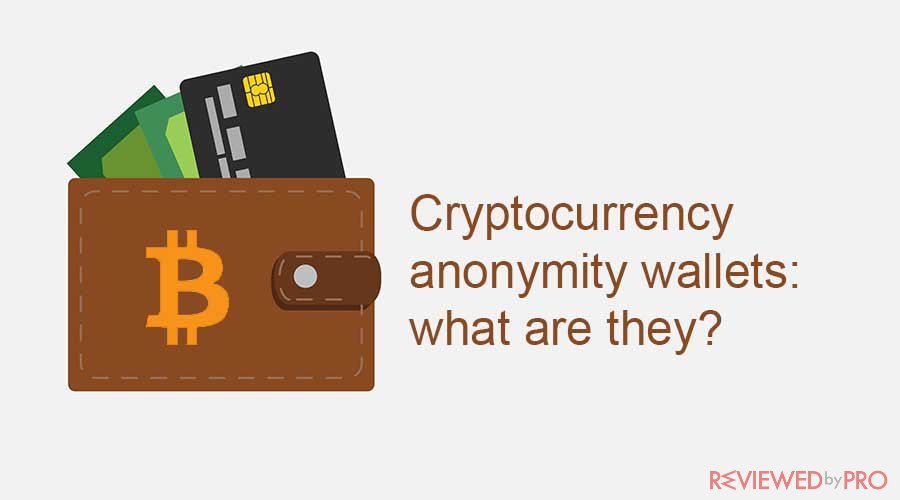
Responses to regulatory bodies' questions concerning the security of anonymous cryptocurrency wallets have been inconsistent. Users may assume that privacy is important to the concept of cryptocurrency, however, it is now impossible to spend crypto without leaving a record of the transaction on the blockchain. Anonymous cryptocurrency wallets, also known as privacy wallets, aim to enhance the level of anonymity and privacy for users by using advanced encryption techniques and obscuring user identities.
However, the use of anonymous crypto wallets has raised concerns among regulators about their potential use in illegal activities . As a result, regulatory bodies have been scrutinizing the security measures of these wallets and requesting more information from developers and users about their functionalities. In summary, while anonymous crypto wallets may offer some level of privacy, users should be aware that complete anonymity is not possible, and regulatory bodies may require more information to ensure the security of these wallets.
Bitcoin and other cryptocurrency wallets provide this anonymity. Let's define crypto wallets before exploring anonymous crypto wallets.
Exactly what is a crypto wallet?
Crypto wallets contain your private keys, enabling you to store your crypto securely while making it accessible. Coins like Bitcoin, Ethereum, Doge, etc., may be sent and received. Ledgers (which function like USB drives) and mobile apps are two examples of crypto wallets. Private keys are a fundamental component of a crypto wallet, as they enable you to access and control your digital assets. A crypto wallet acts like a virtual bank account, where you can send, receive, and store various types of digital currencies, including Bitcoin, Ethereum, Dogecoin, and many others. One important feature of a crypto wallet is its security. Cryptocurrencies are stored on a decentralized network, which means they are not backed by any central authority or institution. Therefore, it is crucial to keep your private keys safe to prevent unauthorized access to your funds. Crypto wallets use advanced encryption algorithms to secure your private keys, making it virtually impossible for hackers or cybercriminals to steal your digital assets.
Technically speaking, cryptocurrency is not stored inside a wallet in the same way that cash is. It's more like a secret code that lets you get into your blockchain-based cryptocurrency assets.
Explain the concept of a cryptocurrency “wallet” that may be used in complete sec
Cryptocurrency users that have an anonymous wallet may buy, sell, and trade their funds without disclosing any personal information. It goes under many other names, including “dark wallet” and “stealth wallet” for cryptocurrency.
Most people would rather use an anonymous crypto wallet that doesn't need them to provide any personal information. Some privacy-focused cryptocurrency wallets enable you to hide your IP address or use a virtual private network (VPN).
If it's not necessary, why do we need it?
Cryptocurrency wallets provide privacy and make decentralized money easier. These two ideas founded cryptography.
Cryptocurrency wallets are safer than public blockchains for various reasons. It's possible to track finances, but it's time-consuming. Cryptocurrency wallets are customizable. Separate wallets might cover personal and professional costs. Anonymous wallets utilize a public blockchain.
Cryptocurrency wallets also offer convenience and accessibility. They allow users to quickly and easily send and receive digital currencies from anywhere in the world, without the need for traditional financial institutions or intermediaries. Furthermore, cryptocurrency wallets provide users with greater control over their funds. Users can manage their own private keys, which means they are the only ones with access to their funds. This eliminates the need for intermediaries such as banks, who can freeze or confiscate funds in certain situations.
In addition, cryptocurrency wallets support a wide range of digital currencies, giving users the ability to diversify their holdings and take advantage of different investment opportunities. Overall, cryptocurrency wallets offer numerous benefits over traditional financial systems, including privacy, security, convenience, accessibility, and control over one's own funds. As the adoption of digital currencies continues to grow, cryptocurrency wallets will likely become even more important in facilitating decentralized financial transactions.
Top 3 Anonymous Cryptocurrency Wallets
Now that we understand what anonymous cryptocurrency wallets are, the next question is: which one is best? Let's learn more about the top three anonymous cryptocurrency wallets:
BitHide
Bithide – white label crypto wallet allows you to have a wallet under your own brand without having to pay for its creation. BitHide reveals true anonymity, a streamlined design, and sophisticated administrative features.
There is no need to comply with AML and KYC rules while using BitHide since all data is encrypted and securely stored. Further, BitHide provides such a high degree of anonymity that your IP address will be undetectable to anybody except you. Additionally, BitHide offers a range of customizable features that allow you to tailor the wallet to meet the specific needs of your business or organization. With BitHide, you can easily manage your cryptocurrencies and conduct transactions with ease. Another advantage of BitHide is its user-friendly interface, which makes it easy for both beginners and experienced users to navigate the platform. The platform offers a simple and intuitive interface that allows you to easily access all the features and tools you need to manage your cryptocurrencies.
ZenGo
Experts say ZenGo is the safest Web3 non-custodial wallet. It simplifies private key security. Store, purchase, sell, trade, transmit, and receive cryptocurrencies. Customers may purchase and sell Bitcoin in Europe, the UK, and the US using over 70 crypto assets. There are three tiers of network speeds and associated fees that users may choose from: slow, normal, and fast. Users may cancel or accelerate transactions. One of the unique features of ZenGo is its keyless security system, which eliminates the need for users to store private keys. Instead, ZenGo uses a distributed key generation system that distributes the key parts across multiple devices, making it virtually impossible for hackers to steal the key. ZenGo also provides a 24/7 customer support team that is available to assist users with any issues or questions they may have.
Ledger Nano X
This hardware wallet uses a PIN code to verify purchases and includes an LED screen. It's a fantastic cryptocurrency wallet for keeping your funds secure and private. The LedgerLive app, which comes preloaded on the Ledger Nano X, makes it possible to store and manage more than 5500 different cryptocurrencies. It's also more affordable than some other options. The storage space for applications is restricted to a maximum of 3.




